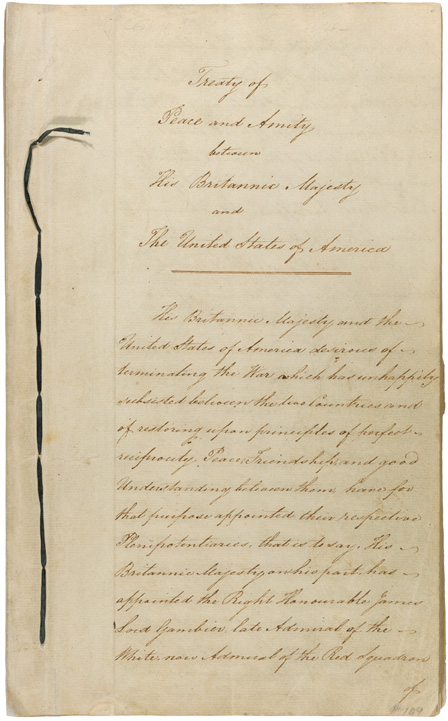Ghent, << gehnt, >> Treaty of, ended the War of 1812 between the United Kingdom and the United States. The two countries signed the treaty at Ghent, Belgium, on Dec. 24, 1814, and then ratified it on Feb. 17, 1815. The American negotiators were John Quincy Adams, James A. Bayard, Henry Clay, Jonathan Russell, and Albert Gallatin. The British representatives were Sir James Gambier, Henry Goulburn, and William Adams. The treaty settled none of the disputes that caused the war. It merely restored the situation that had existed before the war. The treaty did not even mention the fact that American seamen had been forced to serve on British ships. This omission was less important than it seemed because the British had no reason to continue the practice after the final defeat of Napoleon in 1815.

The Treaty of Ghent marked the start of a period in which the United Kingdom and the United States chose to settle their disputes peacefully. The troublesome fisheries question, the problem of payment for slaves seized by the British during the war, and the disagreement over the northwestern boundary of the United States were all worked out in later negotiations.
The Rush-Bagot Agreement of 1817 provided for naval disarmament on the Great Lakes. It also paved the way for an unfortified frontier between Canada and the United States.
